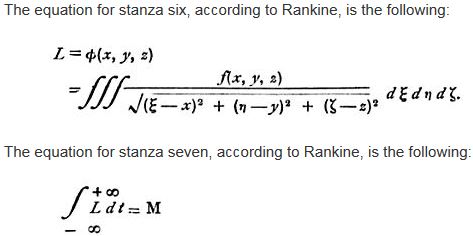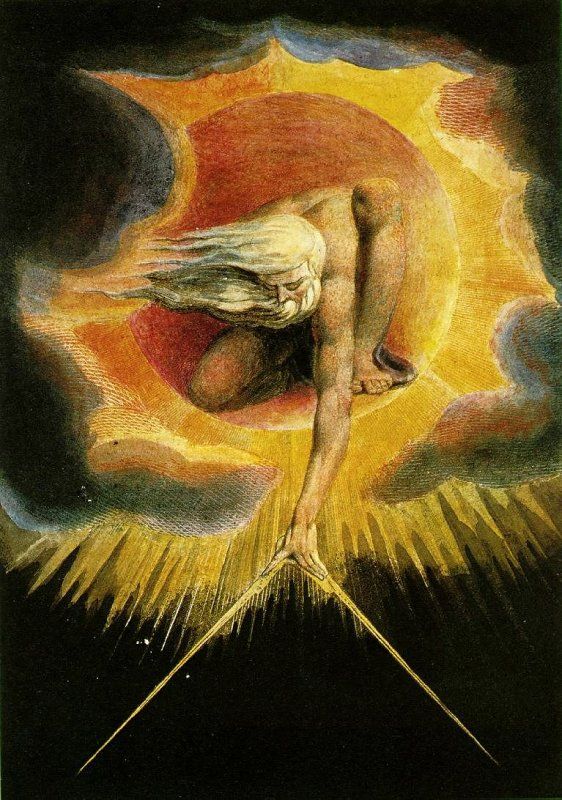
Alexander Pope gave us the immortal lines, “Nature and Nature’s laws lay hid in night: God said, Let Newton be! and all was light.” Pope’s pairing of poetry and physicists should be pleasurable and profitable. However, it is commonly perceived that physicists suffer from a woefully inadequate aesthetic sense as they cannot help but dissolve mysteries into cold mathematical equations. Was it not John Keats who complained that Newton merely “unweave the rainbow” to its prismatic colors?
Lamia (1819)
Do not all charms fly
At the mere touch of cold philosophy?
There was an awful rainbow once in heaven:
We know her woof, her texture; she is given
In the dull catalogue of common things.
Philosophy will clip an Angel’s wings,
Conquer all mysteries by rule and line,
Empty the haunted air, and gnomèd mine—
Unweave a rainbow, as it erewhile made
The tender-person’d Lamia melt into a shade.
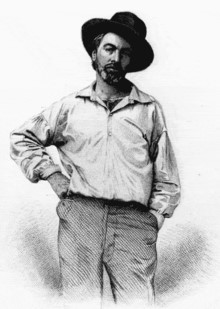
Walt Whitman shares Keats sentiments.
When I Heard the Learn’d Astronomer (1867)
When I heard the learn’d astronomer,
When the proofs, the figures, were ranged in columns before me,
When I was shown the charts and diagrams, to add, divide,
and measure them,
When I sitting heard the astronomer where he lectured with
much applause in the lecture-room,
How soon unaccountable I became tired and sick,
Till rising and gliding out I wander’d off by myself,
In the mystical moist night-air, and from time to time,
Look’d up in perfect silence at the stars.
D.H. Lawrence was more empathetic as he caught a glimpse mysteries of the atom uncovered at the beginnings of quantum theory.
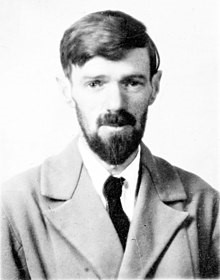
Relativity (from Pansies: Poems, 1929)
I like relativity and quantum theories
because I don’t understand them
and they make me feel as if space shifted about
like a swan that can’t settle,
refusing to sit still and be measured;
and as if the atom were an impulsive thing
always changing its mind.
Scientists do experience emotions in their work. If only the critics of science could empathize with the scientist’s feverish excitement as he anticipates the results of his experiments in the laboratory. I remember a mathematician exclaiming how he was experiencing shivers down his spine as he applied various mathematical operations of “group theory” to explain crystal and atomic structures.
It may seem oxymoronic to put together the words “poetry” and “physicists.” But there is a “cottage industry” on poetry and physicists. Perhaps these scientists are not that aesthetically deficient after all. You may enjoy some of their poems given below.
Haiku for Physicists’ Valentine
[On Quantum Love. Source: https://www.symmetrymagazine.org/article/physics-love-poems]
The gravity that
Pulls my soul to you dilates:
Your beauty slows time.
[Philip Michaels]
Will it work this time?
The wavefunction collapses.
Single once again.
[Anonymous]
Love ignited light,
Eternal and everywhere:
A Cosmic Background
[Akshay Jogoo]
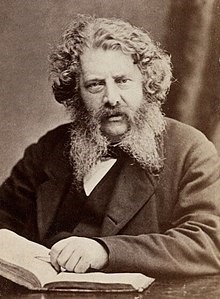
Finally, we should not deny scientists of their sense of humor that is evident in the poem written by William John Macquorn Rankine (published posthumously 1874).
The Mathematician in Love
I
A mathematician fell madly in love
With a lady, young, handsome, and charming:
By angles and ratios harmonic he strove
Her curves and proportions all faultless to prove.
As he scrawled hieroglyphics alarming.
II
He measured with care, from the ends of a base,
The arcs which her features subtended:
Then he framed transcendental equations, to trace
The flowing outlines of her figure and face,
And thought the result very splendid.
III
He studied (since music has charms for the fair)
The theory of fiddles and whistles,-
Then composed, by acoustic equations, an air,
Which, when ’twas performed, made the lady’s long hair
Stand on end, like a porcupine’s bristles.
IV
The lady loved dancing:-he therefore applied,
To the polka and waltz, an equation;
But when to rotate on his axis he tried,
His centre of gravity swayed to one side,
And he fell, by the earth’s gravitation.
V
No doubts of the fate of his suit made him pause,
For he proved, to his own satisfaction,
That the fair one returned his affection;-“because,
“As every one knows, by mechanical laws,
“Re-action is equal to action.”
VI
“Let x denote beauty,-y, manners well-bred,-
“z, Fortune,-(this last is essential),-
“Let L stand for love”-our philosopher said,-
“Then L is a function of x, y, and z,
“Of the kind which is known as potential.”
VII
“Now integrate L with respect to d t,
“(t Standing for time and persuasion);
“Then, between proper limits, ’tis easy to see,
“The definite integral Marriage must be:-
“(A very concise demonstration).”
VIII
Said he-“If the wandering course of the moon
“By Algebra can be predicted,
“The female affections must yield to it soon”-
-But the lady ran off with a dashing dragoon,
And left him amazed and afflicted.
VIII.
Said he — “If the wandering course of the moon
“By Algebra can be predicted,
“The female affections must yield to it soon” —
— But the lady ran off with a dashing dragoon,
And left him amazed and afflicted.
Notes:
I. Golden ratio.
II. Symmetry.
IV. Physics of dance. Paul Dirac was puzzled that Heisenberg knew with certainty beforehand that the girls he wanted to dance with were nice girls. This certainly violates Heisenberg Uncertainty Principle!
V. Newton’s Third Law of Motion.
VI. Potential Energy.
